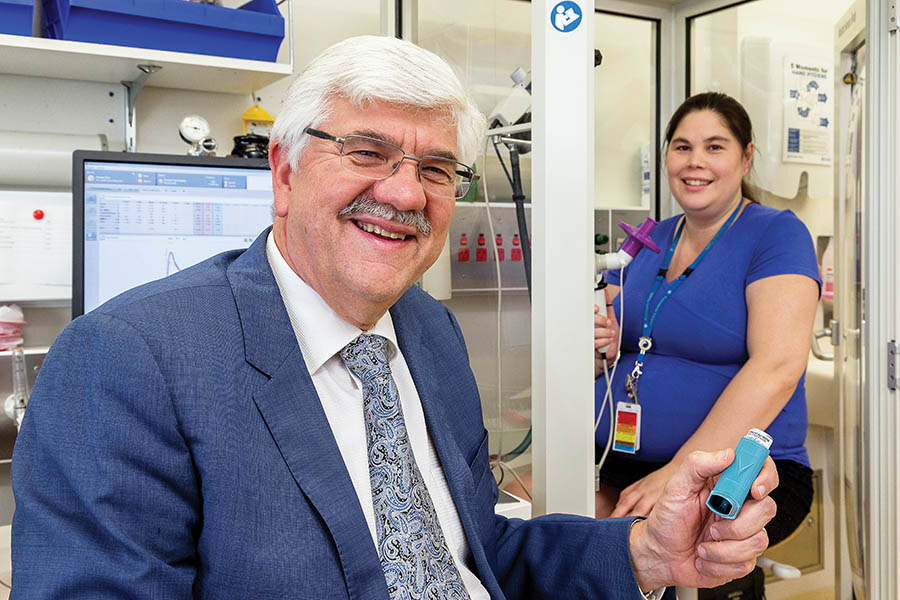
A MEDICAL specialist who helps people with potentially life-threatening sleep conditions has been named as an OAM in the Queen’s Birthday Honours List this month.
Associate professor David Langton received the honour for service to thoracic and sleep medicine.
He said he regarded the Medal of the Order to be recognition of a team effort at Frankston Hospital to improve treatment for patients.
The 59-year-old said he had seen many changes that have improved medical services since he first arrived at the hospital 30 years ago.
“I have been very lucky to see an enormous transition”, he said. “For me, it’s a little bit like seeing a child growing up.”
The Frankston resident said he was the hospital’s first full-time physician. He was appointed to set up and run the intensive care unit.
“At that stage, it was a fairly small community hospital but it needed a good intensive care unit to service the emergency department and to create the ability for the hospital to take on more advanced surgery.”
After about 12 years of running the ICU he “was able to take on more things in the hospital” including the establishment of a sleep laboratory in 1995.
“Sleep medicine is quite a new discipline, probably only 30 or 40 years old, and it’s only in that period of time that people have recognised the presence of stopping breathing during sleep and sleep apnoea,” he said. “That’s now quite a common problem in the community. The way to diagnose it is to monitor a patient overnight while they’re asleep and monitor their breathing.”
General practitioners in Frankston and the peninsula can refer patients who may be suffering from the effects of sleep deprivation to the hospital to be diagnosed in the sleep lab that is open seven nights a week.
Of those referred, the associate professor says “about a third have relatively severe sleep apnea, one-third have a milder disease that can be managed and about one-third don’t have anything at all.
“We use the rule of thirds a lot in medicine.”
Severe sleep apnea can ultimately cause cardiovascular heart disease, heart attacks and strokes if not diagnosed and treated.
The associate professors says he is now working on new medicine treatments for asthma and a succession plan to continue his research work in future.
“Full credit to the [Peninsula Health] management of the hospital. The health dollar is one you always have to fight for and while there’s usually enough money to support the status quo if you want to build or develop things you’ve got to find pots of new money to go to the next step and that’s difficult.
“That’s been a potential barrier but because of good administration in the hospital we’ve been able to achieve those things.”